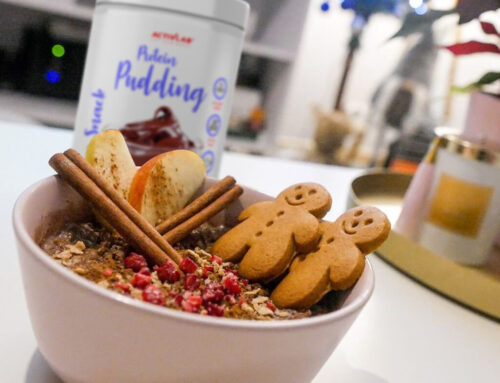Almost two weeks have passed since the New Year began, so we have two questions for you: do you have any New Year’s resolutions, and how is their implementation so far? The first days of January are the perfect time to open a new and challenging tab. And yes (we know!), the year 2021 does not necessarily encourage planning, but when it comes to sports, healthy eating and taking care of your mental and physical well-being – we have a lot of room to show off here. Even if so far it has been different with your New Year’s resolutions, this year (after all!) It is worth fighting for yourself! How to keep them and be able to high five at the end of the year?

Did you know that many resolutions are doomed to failure because… they are not good? What does it mean?
- are based on the opinion of the environment (i.e. what someone thinks you should change);
- they are unrealistic;
- are poorly worded.
At this point, it is worth citing a study carried out by scientists from the University of Stockholm and the Linköping University in Sweden [1] . They analyzed the New Year’s resolutions made by 1066 participants of the experiment. The most popular provisions concerned physical health, weight loss, and changing eating habits. After one year of follow-up, 55% of respondents confirmed that they had managed to keep their resolutions. Interestingly – participants with goal-oriented resolutions (“I will run more”) were much more successful than those whose goals were avoided (“I will not eat sweets”) [2] .
In a press release, lead author of the study, Per Carlbring, professor of psychology at Stockholm University, said: “We were surprised by the results on formulating New Years resolutions. For example, if your goal is to stop eating sweets (to lose weight) you are most likely to be more successful if you say to yourself, “I will eat fruit several times a day” instead of a ban.
How else to help yourself in implementing New Year’s resolutions? Make them:
- specific (eg “I will run 3 times a week”);
- measurable (possible to record, e.g. in the form of silhouette photos);
- achievable (so that they do not exceed your capabilities, and thus – do not cause frustration);
- limited in time.
So dear! You already know what to do, right? We wish you good luck and keep our fingers crossed for the new 2021!
[1] https://journals.plos.org/plosone/article?id=10.1371/journal.pone.0234097
[2] 58.9% compared to 47.1%






Leave A Comment
You must be logged in to post a comment.